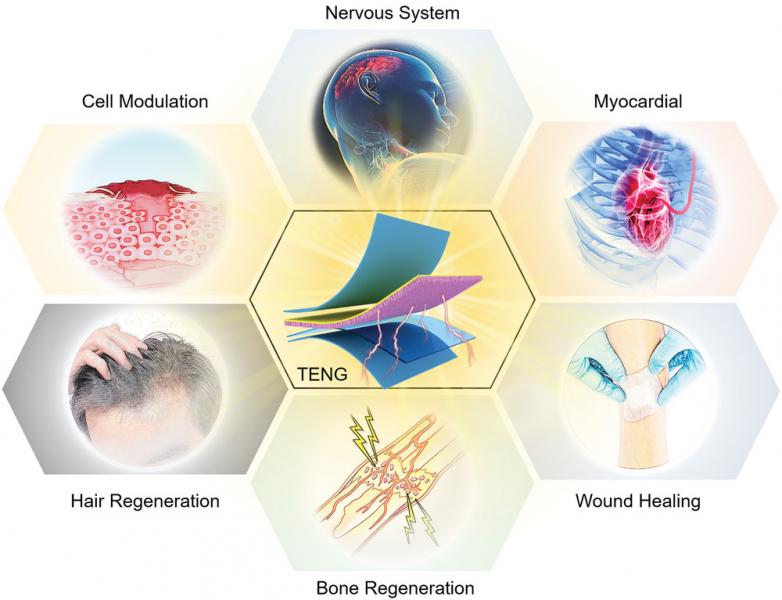- English
- فارسی
Advances in triboelectric nanogenerators for self‐powered regenerative medicine.
Over the last decade, in pursuit to provide suitable alternatives for power supplies of medical devices in regenerative medicine, extensive research on nanogenerators has been developed. Such devices can overcome current commercial battery challenges, including intense heat-on-body complications due to the electrical current during therapeutic usage, leading to protein denaturation, cell structure destruction, and even cell necrosis. In addition, these traditional batteries contain a bulky and heavy structure that prevents them from providing sustainable on body biomedical therapeutic intervention. Furthermore, advantages such as wide-range biocompatible and biodegradable materials, lightweight, and sufficient stretchability for device construction can minimize the side effects of implantable devices, including inflammation or toxicity, as well as eliminate secondary surgery to replace or remove batteries. Triboelectric nanogenerators (TENGs) are associated with harvesting mechanical energy in various forms, among which human body motions can serve as a renewable power source for healthcare systems. This review is written to emphasize the importance of TENG's applications in regenerative medicine and modulation purposes, particularly for the nervous system. Some crucial parameters for implantable consideration are discussed. In the concluding remarks, features for clinical utilization including output efficiency, encapsulation, stability, and miniaturization are suggested as challenges and prospects.

